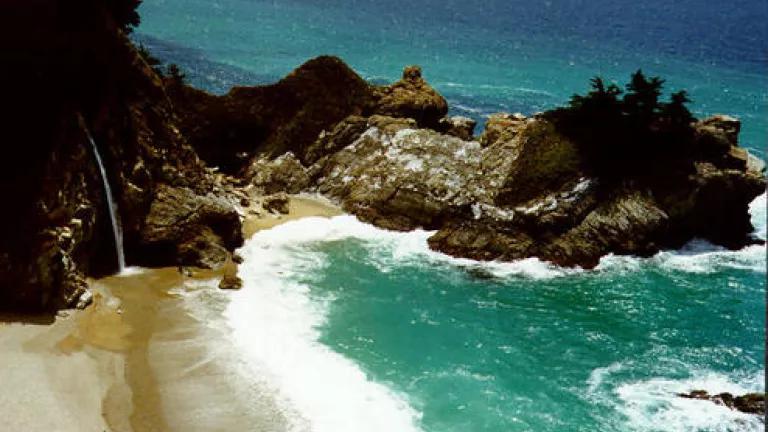
California's coast and ocean define who we are.
They are tremendous natural and economic assets for our State. I've been lucky to have worked to protect California's coast and ocean for over 30 years now - since I first started organizing local governments and businesses to oppose oil drilling off the northern California coast during the Carter Administration. And California's local, state and national leaders know how important healthy oceans are, too. For decades they've led the way with path breaking comprehensive policies to manage the health and uses of our coastline and the State's share of the Pacific Ocean.
This week the California Coastal Commission celebrates the 25th anniversary of Coastal Clean Up Day and the State's coastal management program has been a national model since California voters first passed Prop 20 in 1972. More recently, our State has pioneered ocean management strategies such as establishing an Ocean Protection Council to coordinate ocean management activities among the many state agencies that have various ocean management responsibilities. In 1999 I worked with our ocean team to push for enactment of the Marine Life Protection Act, the first program in the country to create a network of underwater parks in state waters along the coastline along with the Marine Life Management Act to improve the way the State manages its fisheries. And California has led efforts to bring together our Pacific coast neighbor states to improve coordination on ocean issues through the West Coast Governors' Agreement on Ocean Health. This coordination has been key to keeping California, Oregon and Washington united on ocean policies from opposing new offshore oil and gas development that would threaten our precious and valuable marine ecosystems to habitat protection.
But California's efforts have never had a coordinated, comprehensive national policy partner to back up all of its great progress. Now, that's changing. State Congressional leaders like Representative Sam Farr from Monterey and Senator Barbara Boxer are long time coast and ocean champions. Now the federal administration is listening too.
Tomorrow, just a few blocks away from my NRDC office here in San Francisco, California is welcoming members of President Obama's Interagency Ocean Policy Task Force for an important West Coast public meeting to discuss the future of ocean management. The Task Force has been directed to create a unifying oceans, coasts, and Great Lakes policy and design an effective marine spatial planning framework to manage the increasing amount of industrial pressure on our seas in the next 180 days. And they need to hear what we want our future oceans to look like.
Along with lots of state and local leaders, community members and ocean activists, I will testify at tomorrow's hearing. Please join me!
I'll be joining with activists around the country to urge President Obama to issue an Executive Order formally establishing a national policy to protect, maintain, and restore the health of our oceans, coasts, and Great Lakes. Just like we have a federal Clean Air Act for our air and a Clean Water Act for our water, we need a Healthy Oceans policy.
We cannot continue to let chaos rule the way we manage our seas and the Great Lakes. Right now our oceans, coasts, and Great Lakes are governed by more than 140 laws and 20 different agencies, each with different goals and often conflicting mandates. A unifying national policy will provide the coordinated vision we need to tackle successfully the many challenges that our oceans now face, such as pollution, global warming and acidification, habitat loss and unsustainable fishing practices. The formal national policy would help us carefully manage our use of ocean resources, allowing us to fish, surf, dive, and develop ocean renewable energy, in a way that minimizes the impact on the environment and maximizes the return.
I will also encourage the Administration to develop a marine spatial planning framework based on environmental protection. Marine spatial planning identifies various uses make sense, and helps plan ahead by allocating separate spaces in the ocean for different uses. Without marine spatial planning, we've got "ocean sprawl," which stresses ocean resources more than we need to, and jeopardizes the food, jobs, habitat and recreation they provide.
The President's commitment to marine spatial planning now is especially critical as our country moves forward to build a new clean energy economy. Renewable energy should not jeopardize our ecosystems. Marine spatial planning can help us develop offshore renewable energy the right way the first time, allowing us to protect ocean resources and repower America with energy that can't spill or run out.
The framework should include these 5 critical elements:
1 - Based on sound science
2 - Ensures the protection, maintenance and restoration of marine ecosystem health
3 - Addresses the cumulative impacts of all activities on ocean health
4 - Will not let a lack of information delay actions to protect the resources
5 - Supports regional collaboration and partnerships
I can't wait to meet with the new federal Administration to share California's coast and ocean experiences as models for national action.
